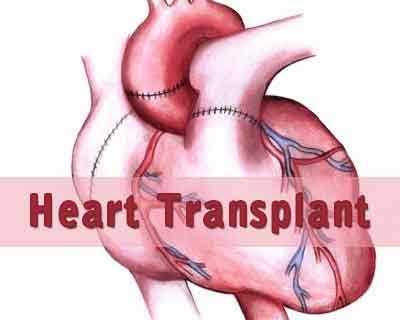- Home
- Editorial
- News
- Practice Guidelines
- Anesthesiology Guidelines
- Cancer Guidelines
- Cardiac Sciences Guidelines
- Critical Care Guidelines
- Dentistry Guidelines
- Dermatology Guidelines
- Diabetes and Endo Guidelines
- Diagnostics Guidelines
- ENT Guidelines
- Featured Practice Guidelines
- Gastroenterology Guidelines
- Geriatrics Guidelines
- Medicine Guidelines
- Nephrology Guidelines
- Neurosciences Guidelines
- Obs and Gynae Guidelines
- Ophthalmology Guidelines
- Orthopaedics Guidelines
- Paediatrics Guidelines
- Psychiatry Guidelines
- Pulmonology Guidelines
- Radiology Guidelines
- Surgery Guidelines
- Urology Guidelines
PGIMER : Second heart transplant patient passes away

Punjab : While the Postgraduate Institute of Medical Education and Research has been making strides in the field of heart surgeries, the cardiac procedures themselves are always a journey filled with challenges. The 3rd heart transplant surgery conducted at the institute ended in the demise of the recipient of the donor organ.
On 27 October, a 24 year old man suffering from decompensated cardio myopathy was operated upon but subsequently lost his life. “I don’t know what was the cause of his death. Doctors told me that he got infection,” said the patient’s father.
The doctors, having put in their best efforts, chose not to comment on the matter.
In August 2013, the doctors had performed the first heart transplant surgery on a 53-year-old patient who seemed to be showing steady progress post the procedure. A few months later however, his body started showing signs of organ rejection and he died in February.

Disclaimer: This site is primarily intended for healthcare professionals. Any content/information on this website does not replace the advice of medical and/or health professionals and should not be construed as medical/diagnostic advice/endorsement or prescription. Use of this site is subject to our terms of use, privacy policy, advertisement policy. © 2020 Minerva Medical Treatment Pvt Ltd